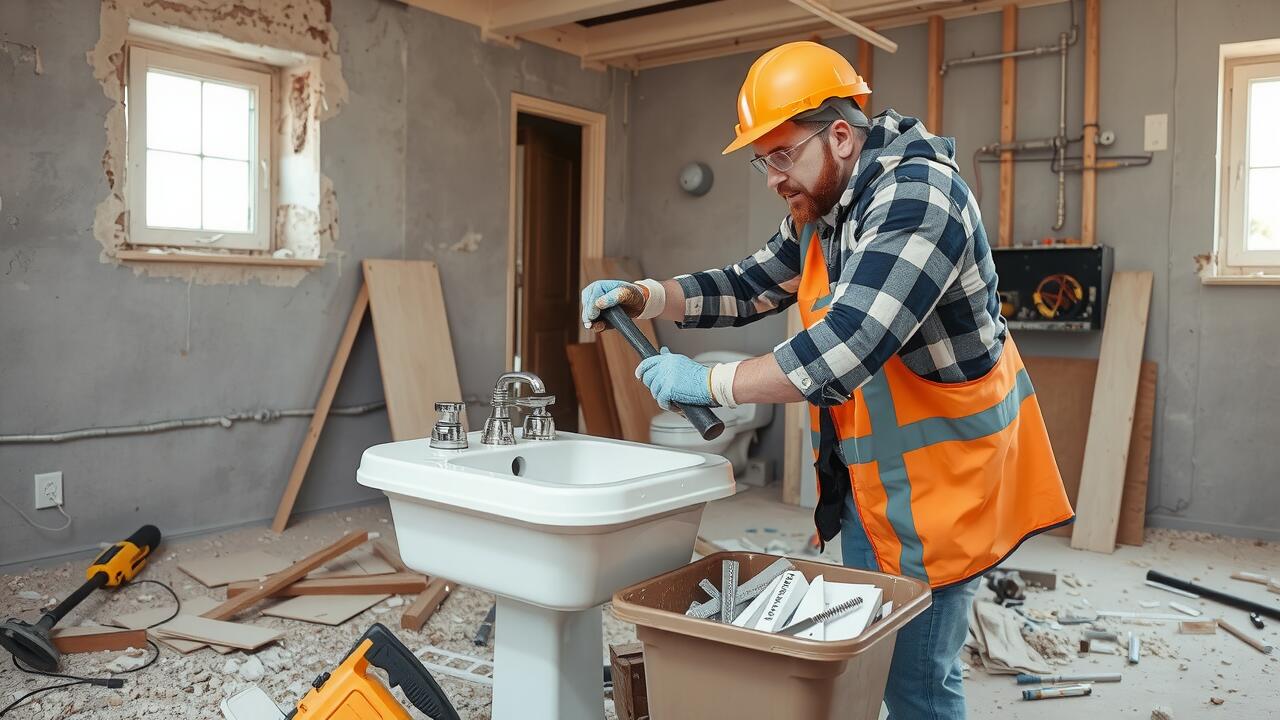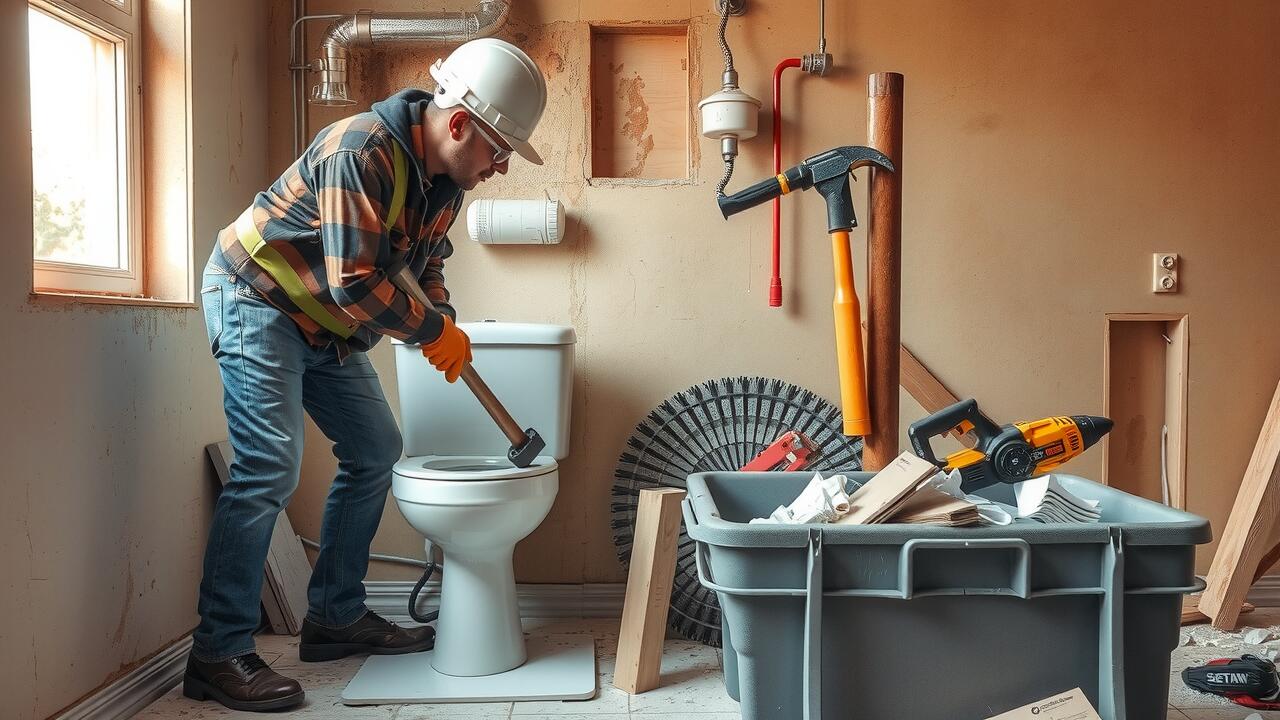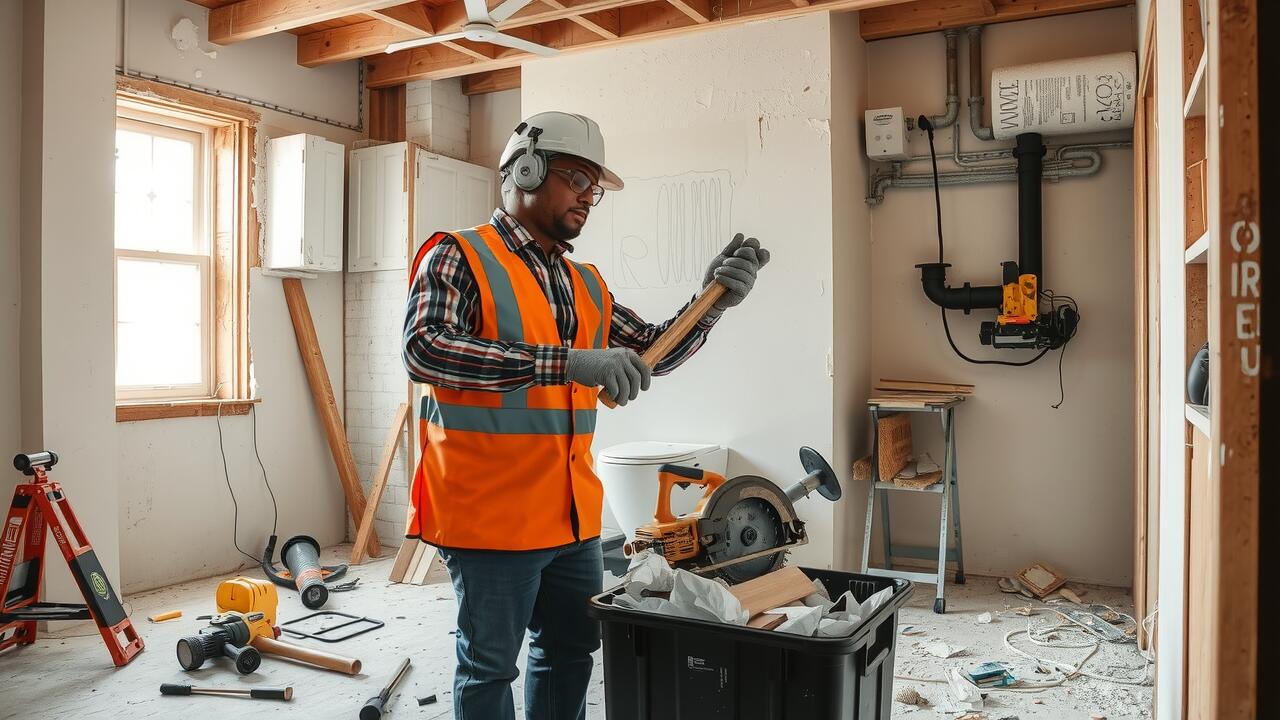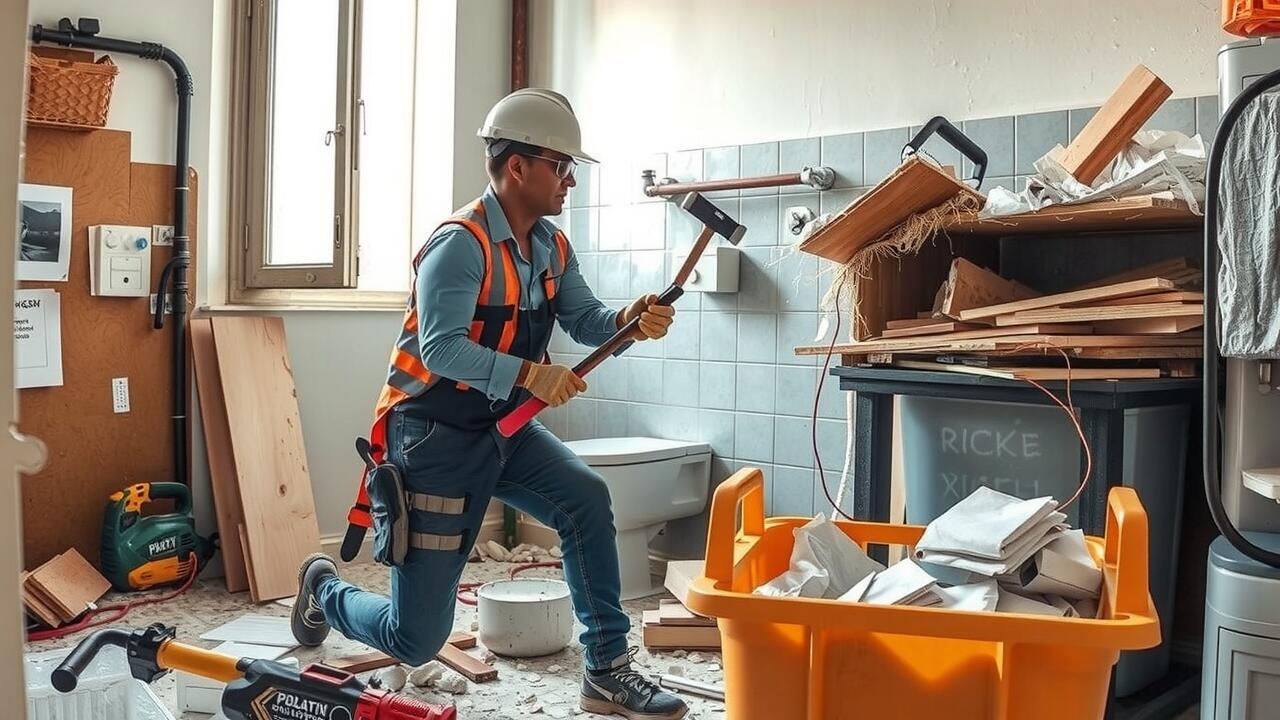
Environmental Considerations
The practice of demolition and dismantling often carries significant environmental implications. Adverse effects on local ecosystems can arise if not approached with care. Activities such as demolition and removal of existing fixtures Burslem, Stoke-on-Trent require thorough assessments to identify potential hazards, including hazardous materials that may be disturbed during the process. Effective planning is essential to reduce the impact on surrounding areas and to protect wildlife.
Implementing sustainable practices can significantly mitigate environmental concerns. This includes recycling materials wherever possible and responsibly disposing of waste. Contractors should adhere to local regulations and guidelines, ensuring their methods align with best practices for environmental stewardship. Prioritising eco-friendly approaches during demolition operations can lead to a more sustainable future while also ensuring compliance with relevant legislation.
Minimising Waste and Pollution
Minimising waste and pollution during the demolition process is essential to ensure environmental sustainability. Effective planning involves assessing the materials and structures involved in the demolition project. The recycling of salvaged materials can significantly reduce the amount of waste sent to landfill. For instance, the demolition and removal of existing fixtures Burslem, Stoke-on-Trent, can be done with a focus on extracting valuable materials like metals and timber, which can be repurposed or recycled. This approach not only benefits the environment but also contributes to resource efficiency.
Additionally, employing dust suppression methods and appropriate waste management protocols can mitigate pollution risks. Contractors should use techniques such as water spraying and dust screens to minimise airborne particles during demolition activities. By maintaining stringent controls, the impact on nearby communities and ecosystems can be significantly reduced. In the context of projects like the demolition and removal of existing fixtures Burslem, Stoke-on-Trent, these practices promote responsible demolition while ensuring compliance with environmental regulations.
Role of Contractors and Professionals
Contractors play a crucial role in the process of demolition and dismantling, particularly when it comes to ensuring compliance with Regulation 20. Their expertise is essential for assessing the site, developing a comprehensive plan, and executing the demolition safely and efficiently. In locations like Burslem, Stoke-on-Trent, contractors must be well-versed in local regulations and environmental considerations, ensuring that all necessary protocols are followed to minimise impact.
Professionals in the field are also responsible for coordinating with various stakeholders, including regulatory bodies and environmental consultants. Their accountability extends to overseeing the selection of appropriate methods and techniques for demolition and removal of existing fixtures Burslem, Stoke-on-Trent. Training and experience play vital roles in ensuring that all operations are conducted with the utmost respect for safety standards, environmental impacts, and community concerns.
Responsibilities and Accountability
Contractors involved in demolition and dismantling projects have a duty to ensure compliance with all relevant regulations. This includes the appropriate handling and disposal of materials, particularly any that may be hazardous. Effective management of the demolition process is crucial to safeguard the environment and the health of the local community. For projects like the demolition and removal of existing fixtures in Burslem, Stoke-on-Trent, clear accountability measures must be established to mitigate risks and ensure that all operations meet legal standards.
Furthermore, contractors must maintain thorough records of their activities, providing detailed documentation of processes and material disposal. This paperwork serves as evidence of compliance and is essential for both internal reviews and external audits. Transparency in executing responsibilities fosters trust and encourages adherence to best practices within the industry. In the context of demolishing structures, a structured approach to accountability ensures that all stakeholders understand their roles and are prepared to act in line with regulatory requirements.
Documentation and Reporting Requirements
Strict documentation and comprehensive reporting are critical components of the regulatory framework surrounding demolition projects. Contractors must maintain accurate records of all activities, including pre-demolition surveys and waste management plans. This paperwork is vital for demonstrating compliance with local environmental regulations and ensuring that safety protocols are followed throughout the demolition process. In Burslem, Stoke-on-Trent, the demolition and removal of existing fixtures requires careful documentation to address any potential hazards or protected structures in the vicinity.
Regular updates and formal reports should be submitted to relevant authorities, detailing the progress and methodology of the demolition. Such documentation not only provides transparency but also facilitates communication with stakeholders involved in the project. Proper reporting assists in tracking compliance with environmental standards and mitigates potential liabilities. Ensuring that all paperwork is meticulously prepared can significantly affect the success of demolition and removal of existing fixtures Burslem, Stoke-on-Trent, enabling contractors to fulfil their obligations efficiently.
Essential Paperwork for Compliance
Proper documentation is vital for compliance with Regulation 20 during demolition or dismantling projects. Contractors must prepare extensive paperwork to ensure all legal and safety protocols are adhered to. This includes risk assessments, method statements, and waste management plans. Each document plays a critical role in planning and executing the project responsibly. Failure to provide adequate paperwork can lead to delays, fines, or even legal repercussions.
When conducting projects like the demolition and removal of existing fixtures Burslem, Stoke-on-Trent, it's crucial to maintain meticulous records throughout the process. This includes tracking waste disposal and ensuring that all materials are handled according to local regulations. Documentation must be readily available for inspections and audits, reinforcing transparency and accountability. The emphasis on comprehensive paperwork not only aids in compliance but also contributes to the safety and environmental stewardship of the demolition industry.
FAQS
What is Regulation 20 in relation to demolition or dismantling?
Regulation 20 refers to specific guidelines and requirements set out to ensure that demolition or dismantling activities are conducted safely and with minimal environmental impact. It outlines procedures for managing waste, pollution, and the safety of both workers and the public.
What environmental considerations should be taken into account during demolition?
Environmental considerations during demolition include minimising waste and pollution, ensuring proper disposal of hazardous materials, protecting nearby ecosystems, and adhering to regulations that promote sustainable practices.
Who is responsible for ensuring compliance with Regulation 20?
Compliance with Regulation 20 falls primarily on contractors and professionals involved in the demolition project. They must ensure that all activities meet the required legal standards and that the necessary documentation is maintained throughout the process.
What kind of documentation is required for compliance with Regulation 20?
Essential paperwork for compliance includes risk assessments, method statements, waste transfer notes, and any permits related to the demolition. This documentation serves to demonstrate that all safety and environmental requirements are being met.
What are the consequences of failing to comply with Regulation 20?
Failing to comply with Regulation 20 can result in legal penalties, including fines and sanctions, as well as potential harm to the environment and public safety. Additionally, non-compliance can lead to project delays and damage to the contractor's reputation.




